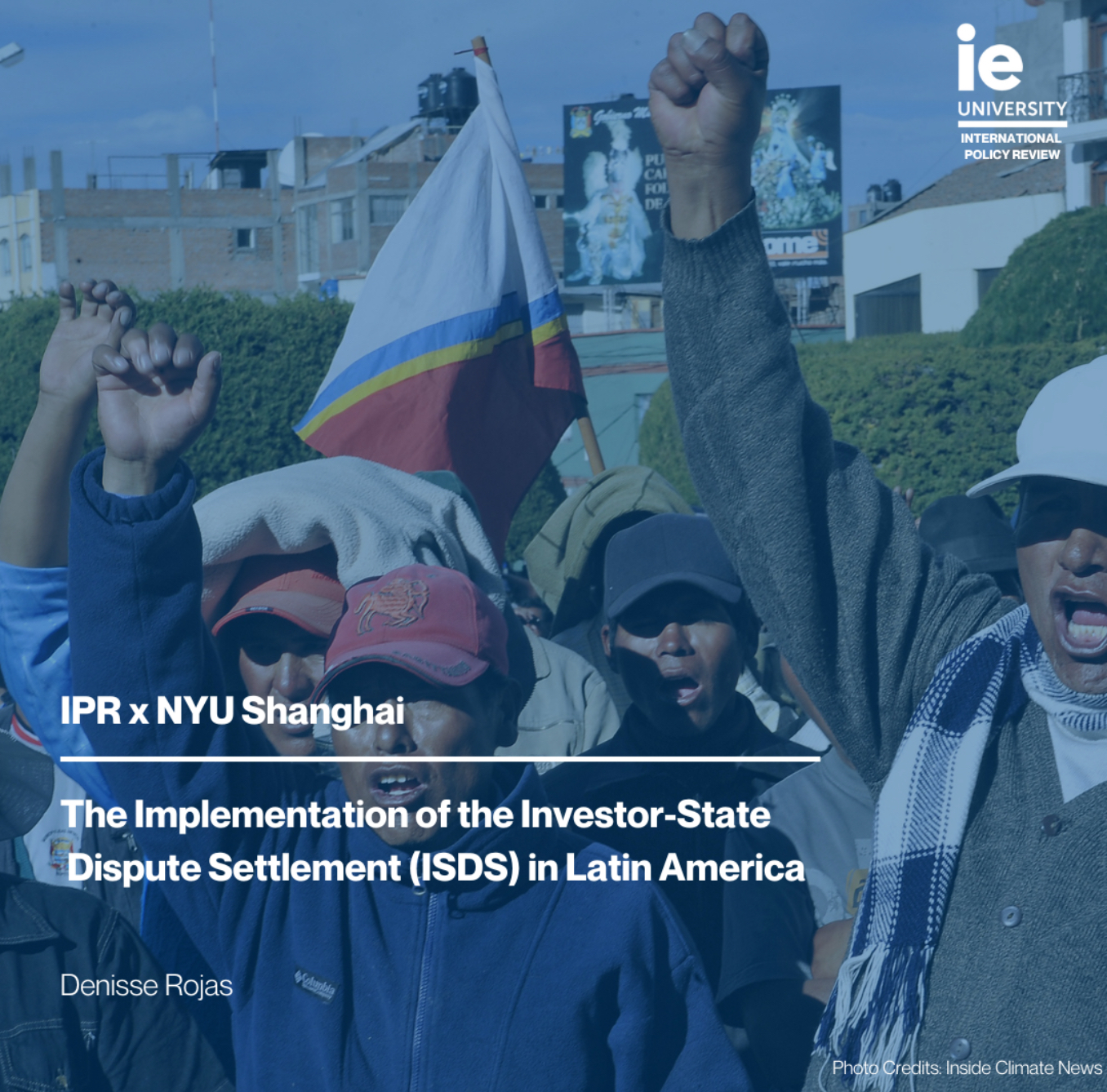
01 Jul The Implementation of the Investor-State Dispute Settlement (ISDS) in Latin America: Revealing Enduring Colonial Legacies in International Legal Frameworks
Denisse Alessandra Rojas Fernandez (NYU writer)
Abstract
In 2014, the Canadian mining company Bear Creek filed a 522 million dollar lawsuit against Peru for
allegedly violating the bilateral treaty’s Investor-State Dispute Settlement (ISDS) clause. The firm accused Peru of indirect expropriation, and despite the known complications, the arbitration tribunal ruled in favour of Bear Creek, obliging the Peruvian state to pay millions in damages. Across Global South countries, the ISDS system has repeatedly led to rulings that prioritise corporate interests. The ISDS has evolved into a mechanism that limits the autonomy of states by exposing them to expensive litigation for enacting public interest measures. Rooted in a desire for imperial powers to recolonise independent nations, the system presents undeniable parallels to colonial legal systems from the past. Therefore, this paper argues that the ISDS functions as a neocolonial tool that undermines Latin American countries’ political agency.
READ THE FULL ARTICLE HERE (Page 6-12)
Keywords: ISDS, Colonialism, Global South, Bias.

Sorry, the comment form is closed at this time.